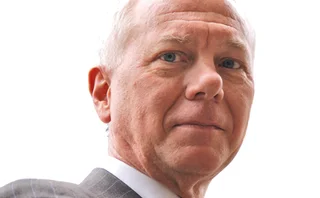
Rating agencies assess money markets
In two conference calls last week, Fitch Ratings and Moody’s sought to capture the effect of the commercial paper (CP) market's lack of liquidity on the wider banking outlook.
“However, risk aversion has spread considerably and poses challenges to central banks to ensure the availability of liquidity within banking systems, and, more generally, its distribution or ‘fluidity’ throughout the financial system,” said Cailleteau.
Of particular concern to Cailleteau was the TED spread, which looks at the difference between the three-month Libor and treasury bill spreads.
Although there were clear problems with the lack of short-term funding available in the market, Moody’s saw geographical differences in the CP market.
“Today, the ability to roll CP is severely hindered by lack of investor demand,” said Reynold Leegerstee, team managing director at Moody’s. “The liquidity situation in the asset-backed commercial paper markets generally appears to be the tightest we have ever observed, but not all markets are affected the same way.”
The agencies compared the near total closure of the structured CP market in Europe with the US and Asia, where shorter maturity can still be placed. Referring specifically to the German banking market, and the problems of IKB and Sachsen LB, Fitch sought to allay fears of a systemic crisis in Germany.
Both of these banks had to be bailed out of their conduit, structured investment vehicle (SIV) or SIV-lite commitments this month. The rating agency estimates total exposure to these vehicles by German banks to be around $300 billion.
“Fitch is of the opinion that most German banks are well positioned to absorb any external shocks of limited size, this especially in light of the considerable improvements in asset quality and capitalisation over the last five years,” said the agency in a report released last week.
See also:
German contagion looms as funds buckle
United Capital moves to halt investor exodus
SIV-lite vehicles take massive hit from S&P
Central banks act again as credit crisis continues
Only users who have a paid subscription or are part of a corporate subscription are able to print or copy content.
To access these options, along with all other subscription benefits, please contact info@risk.net or view our subscription options here: http://subscriptions.risk.net/subscribe
You are currently unable to print this content. Please contact info@risk.net to find out more.
You are currently unable to copy this content. Please contact info@risk.net to find out more.
Copyright Infopro Digital Limited. All rights reserved.
As outlined in our terms and conditions, https://www.infopro-digital.com/terms-and-conditions/subscriptions/ (point 2.4), printing is limited to a single copy.
If you would like to purchase additional rights please email info@risk.net
Copyright Infopro Digital Limited. All rights reserved.
You may share this content using our article tools. As outlined in our terms and conditions, https://www.infopro-digital.com/terms-and-conditions/subscriptions/ (clause 2.4), an Authorised User may only make one copy of the materials for their own personal use. You must also comply with the restrictions in clause 2.5.
If you would like to purchase additional rights please email info@risk.net
More on Economics
Global investment outlook: 2026 and beyond
Broadening, steepening and weakening: Franklin Templeton’s top investment ideas for 2026 and beyond
Webinar – Nowcasting the US economy
Join CME Group Chief Economist, Blu Putnam, as he shares insights using alternative data and nowcasting to monitor developments in the US economy.
Fed Funds Futures in a Post-ZIRP World
As the FOMC returns to more active management of its key target rate, Federal Funds futures have experienced dramatic growth.
Challenging economic pessimism: an optimistic note
A contrarian, upbeat view of the long-term economic outlook
Economists, like hedge fund traders, need open minds
Economists, risk managers and traders must learn the lessons of crisis, says Kaminski
Fed wrong not to start QE tapering, says UBS economist
The surprise decision by the Federal Reserve last month not to scale back its quantitative easing programme will create more volatility, says economist







